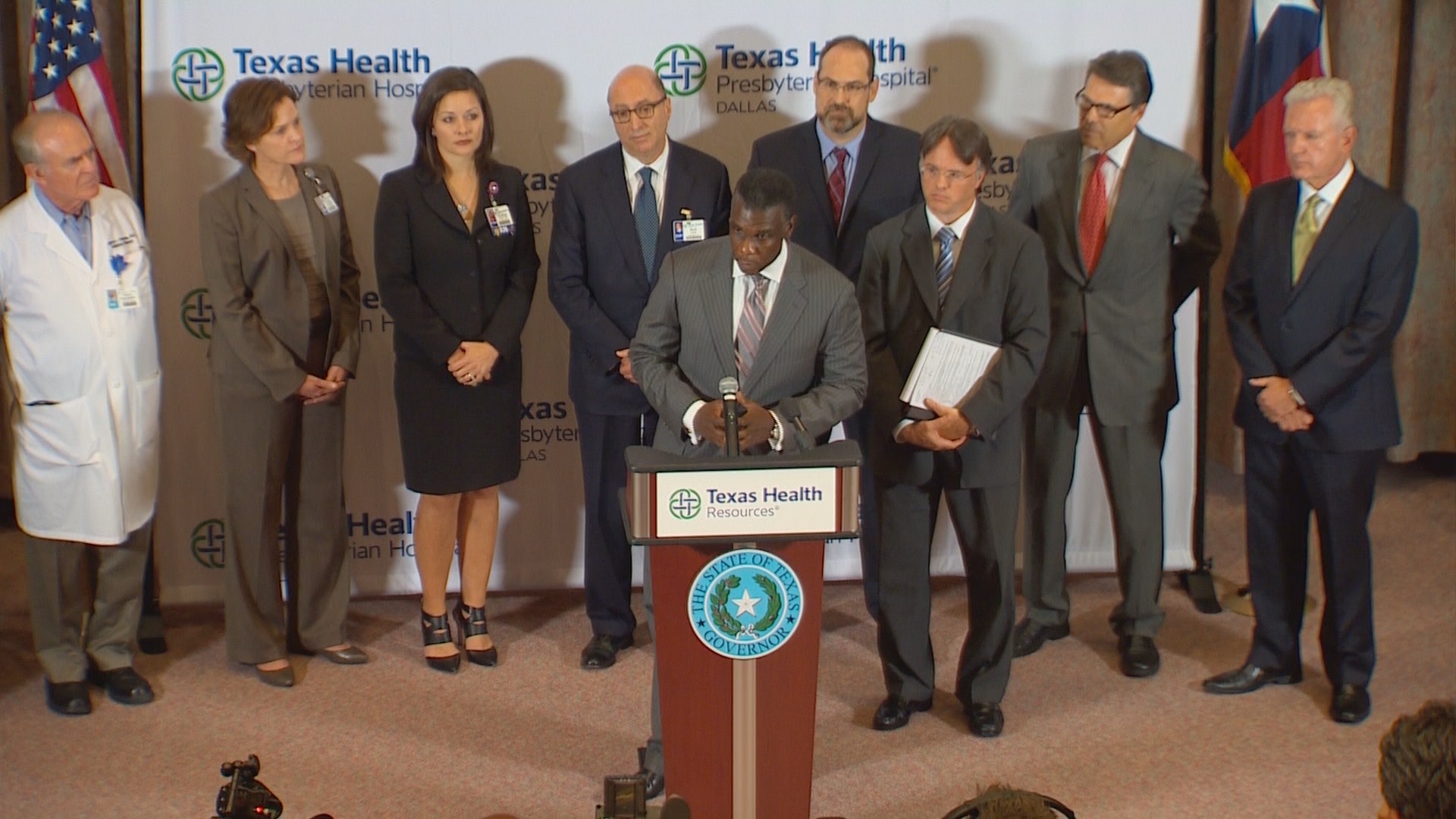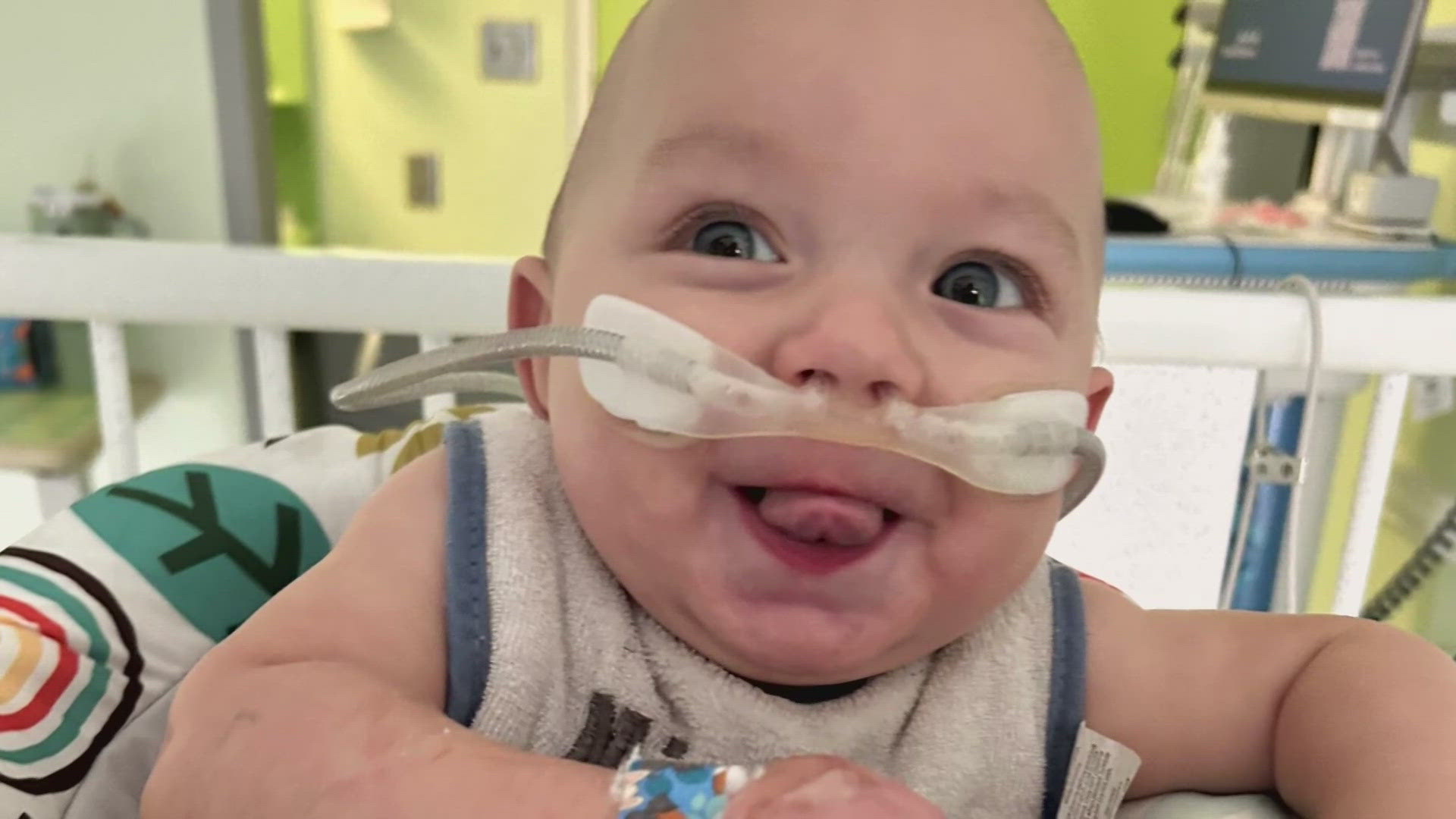DALLAS – Even a resident inside the apartment quarantined for potential Ebola contamination couldn't understand why she and her family were left to live for days with the Ebola patient Thomas Eric Duncan's contaminated belongings.
"Only the towel is in the plastic bag, but the rest of his stuff stayed the same on the bed," said the woman in the apartment, who goes by the name Louise. "The bed sheets, everything is on the bed."
A hazardous materials crew finally showed up Friday to bag up and sanitize the materials, four days after Duncan, who was staying at the apartment, was diagnosed with Ebola.
There are concerns that Ebola has had the chance to spread because officials have been slow to react and mishandled the case since the beginning.
Duncan originally showed up in the emergency room at Texas Health Presbyterian Hospital in Dallas in the evening of September 25. According to the hospital, he presented with a temperature of 100.1 degrees, abdominal pain, a headache, and decreased urination.
Hospital officials say Duncan told a nurse that he had been in Africa, but that information was not passed on to all of the staff who saw and diagnosed the patient.
Hospital officials said Thursday night that the information was not passed on due to the way the hospital's electronic health records (EHR) are kept, but then backed away from that in a statement issued Friday night.
"[T]he patient's travel history was documented and available to the full care team in the electronic health record (EHR), including within the physician's workflow," said Texas Health Resources Public Relations Director Wendell Watson. "There was no flaw in the EHR in the way the physician and nursing portions interacted related to this event."
The statement did not go on to explain why all staff did not know Duncan had been in Africa if the EHR system was not flawed.
Thomas Eric Duncan was sent home, growing more ill, for three more days. He returned to the hospital by ambulance on Sunday, Sept. 28, and has been isolated since. His Ebola test came back positive on Tuesday, Sept. 30.
Even after the Ebola diagnosis, close contacts of the patient left the residence when they were asked to stay home.
Children who stayed in the apartment with Duncan went to school for two days after the diagnosis. One child in the home even went to school Wednesday morning, despite a warning from health authorities to stay inside the residence.
After that, county officials secured a signed quarantine agreement and posted a county sheriff's deputy outside the door.
It took days before any official showed up at the Ivy Apartments complex, where Duncan was staying. Residents were scared. Many speak African and other languages, not English or Spanish. There was no translator.
![Critics say officials have mishandled Ebola response[ID=15136388] ID=15136388](http://wfaa-download.edgesuite.net/video/15136388/15136388_Still.jpg)
On Wednesday night, when Dallas County Health & Human Services Director Zach Thompson and Dr. Christopher Perkins visited the potentially-contaminated apartment with an official legal order of quarantine, five members of the Dallas County Sheriff's Office walked in with them. They were not wearing medical protection such as gloves, nor were they given an warnings about possible exposure.
Those deputies admit they are now nervous.
"Again, right as my wife said, 'We're 99-percent confident we're okay,'" said Sgt. Michael Monnig. "It's that one percent that's the unknown that scares us."
Even attempts by the city to reach out to residents via a reverse 911-phone call caused confusion.
"All of a sudden, the phone just went haywire," said Brenda Baugher, a real-estate agent.
It was Baugher's number - not the city's - that showed up on the caller ID with the emergency Ebola message sent to Dallas residents Wednesday. She fielded hundreds of panicked calls.
"I had people going, 'What about this Ebola emergency?'" Baugher said, "And I'm like, 'I don't know,' and the phone's going crazy.
"I went frantic," she admitted. "I called 911."
The county has subsequently activated its emergency Incident Management Center to better coordinate the response.
Dallas County and the Centers for Disease Control and Prevention epidemiologists have narrowed the list of contacts under watch from 100 to 50. Only ten of those contacts are considered high risk.
The higher-risk contacts are being monitored for fever twice daily. They are not allowed to leave their residence or have visitors.
News 8's Josh Davis contributed to this story


![1003_ebola_response_press_conference [ID=16701879]](http://moc-assets-prod.gannett-cdn.com/-mm-/33d97f8a03d5ea06baca0f7a30eca34c8bd87643/r=500x281/local/-/media/WFAA/None/2014/10/04/1412397437000-1003-ebola-response-press-conference.JPG)
![1003_ebola_cleaning_crew [ID=16702055]](http://moc-assets-prod.gannett-cdn.com/-mm-/33d97f8a03d5ea06baca0f7a30eca34c8bd87643/r=500x281/local/-/media/WFAA/None/2014/10/04/1412397519000-1003-ebola-cleaning-crew.JPG)
